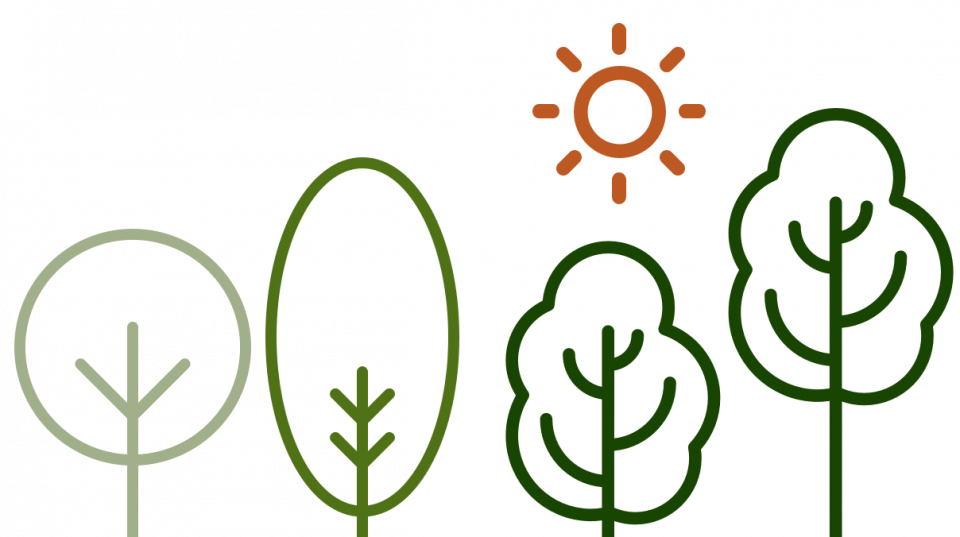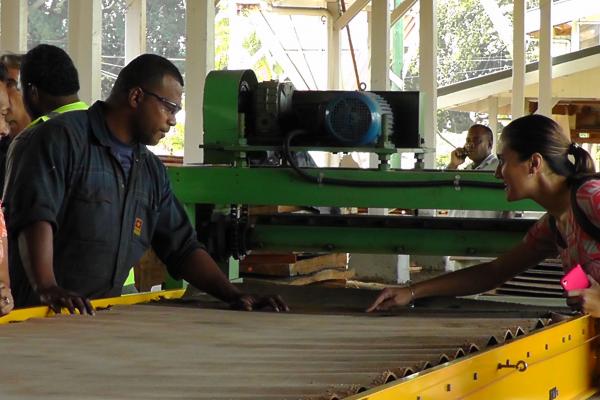Overview
This Small Research Activity (SRA) aimed to develop DNA-based legality verification and chain of custody systems for teak in Laos, Indonesia, Solomon Islands and PNG, where ACIAR has teak projects. In Myanmar and Thailand, it made sure the teak DNA database represents the SE Asian natural forest and plantations from which teak is harvested. This project built on two SRAs (FST/2014/028 and FST/2015/007) that developed DNA markers that could be used with teak timber and that studied the teak chains in Indonesia and Myanmar.
Teak is one of the most commercially important timbers in the world. Its timber is durable and water resistant, and is used for boats, buildings, veneer, carving, turnings, and furniture. Illegally logged timber products, including teak, can enter markets through mixing legitimate supply chains and associated document fraud. Australia works with producer countries to prevent illegal timber entering Australia; this benefits producer countries and improves environmental outcomes globally. Removing doubt about the origin of timber creates certainty for industry and consumers, opens markets for timber, and increases taxation revenue for governments of developing countries. It also provides a mechanism for community forestry suppliers to demonstrate sustainability to the global market. DNA markers are used to distinguish timber species, source populations and individuals. The cost of this technology is dropping dramatically and is already cost effective when used with document verification audits. DNA technology is suitable for checking chain-of-custody compliance claims, and has been used for species in Indonesia and China.
The University of Adelaide managed this project, working with the private sector and partners from ACIAR teak projects. The project made legality compliance systems more efficient, reduced barriers for smallholders and wood manufacturing SMEs, and helped Australia to restrict the import of illegally sourced timber.
Project outcomes
A global map of teak genetic variation - Across the entire project, more than 1,600 teak tree samples were collected across the natural and planted range of teak in SE Asia and the Pacific Islands.
Genetic analysis of 600 of these samples has produced an initial global map of teak genetic variation. It is clear from this map that the major geographic regions/countries where teak grows can be distinguished genetically (i.e. India, Myanmar, Thailand, Laos and Indonesia). In general, results indicate that the genetic clusters which dominate each country are qualitatively different, and are likely to facilitate good provenance determination for unknown samples. This work is being prepared for scientific publication.
From the work of this project we can conclude that genetic identification of teak is a promising prospect for augmenting existing paper-based processes for timber certification, and can be applied to both natural forest and plantation situations to verify legality of origins and support market access and trust in high value international timber markets.
Two workshops (Solomon Islands Development Trust in Honiara on 28th June 2017; Provincial Agriculture & Forestry Office (PAFO) Luang Prabang, Laos on 25th-26th September 2018) were held as part of this project, and training in field and laboratory procedures was provided to project partners from Indonesia, Laos, PNG, Solomon Islands and Myanmar.





